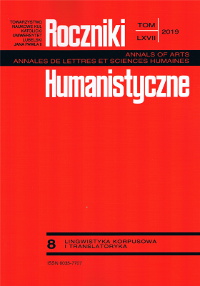Présentation de la modélisation en PNL. Relation maître–apprenti
Presentation of NLP Modeling: Master–Apprentice Relationship
Author(s): Anna Wiacek Le VergerSubject(s): Language and Literature Studies, Translation Studies
Published by: Towarzystwo Naukowe KUL & Katolicki Uniwersytet Lubelski Jana Pawła II
Keywords: modeling; master–apprentice relationship; learning; strategy; communication; transmission
Summary/Abstract: This article presents, in a didactic approach, one of the fundamental tools of Neuro Linguistic Programming: modeling. The bias is to consider the modeling approach as a tool that optimizes learning and efficiency in getting results. In the master-apprentice relationship the act of learning is done by observation, imitation, transmission. The teacher transmits knowledge and know-how but also a « savoir-être » which is fundamental in the realization of a craft work. The teacher has an educational responsibility towards his/her apprentice. The apprentice listens to his/her teacher, acts under his/her influence and performs a job according to his/her instructions to become a “master” in turn. This learning is based on a certain dynamic of trust between these two people. Neuro Linguistic Programming (NLP) offers a number of tools in communication, in relationship building, that identify strategies in behavior. Modeling is a powerful tool which clarifies how a person performs an action that leads to a satisfactory and even excellent result. It gives, thanks to an analysis in the form of questions, a certain number of criteria which allow the learner to carry out an action, a task, a work in an optimal way, following the example of his model. The exercise of modeling seems very relevant to us in a “Master–apprentice” relationship.
Journal: Roczniki Humanistyczne
- Issue Year: 67/2019
- Issue No: 8
- Page Range: 185-200
- Page Count: 16
- Language: French

